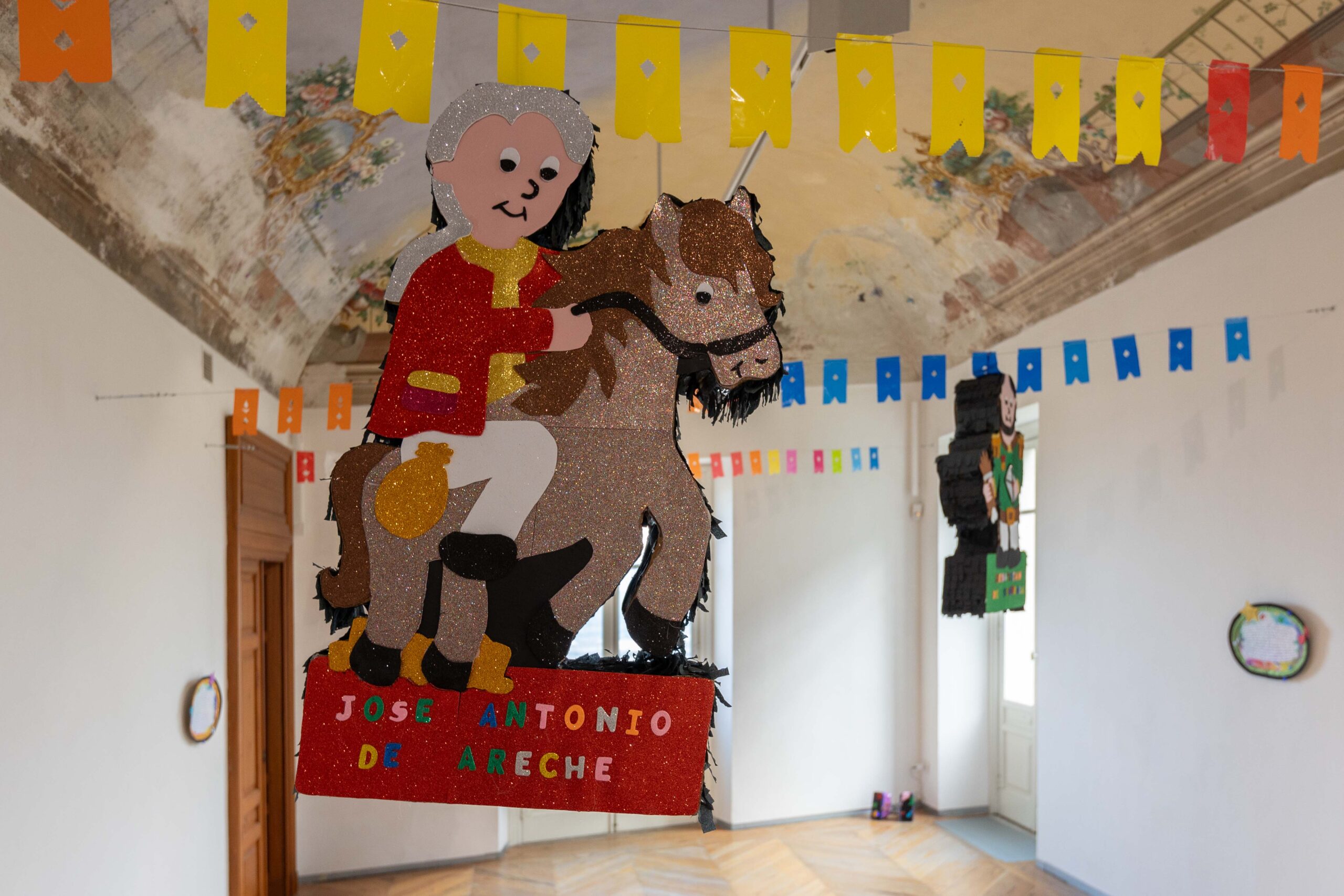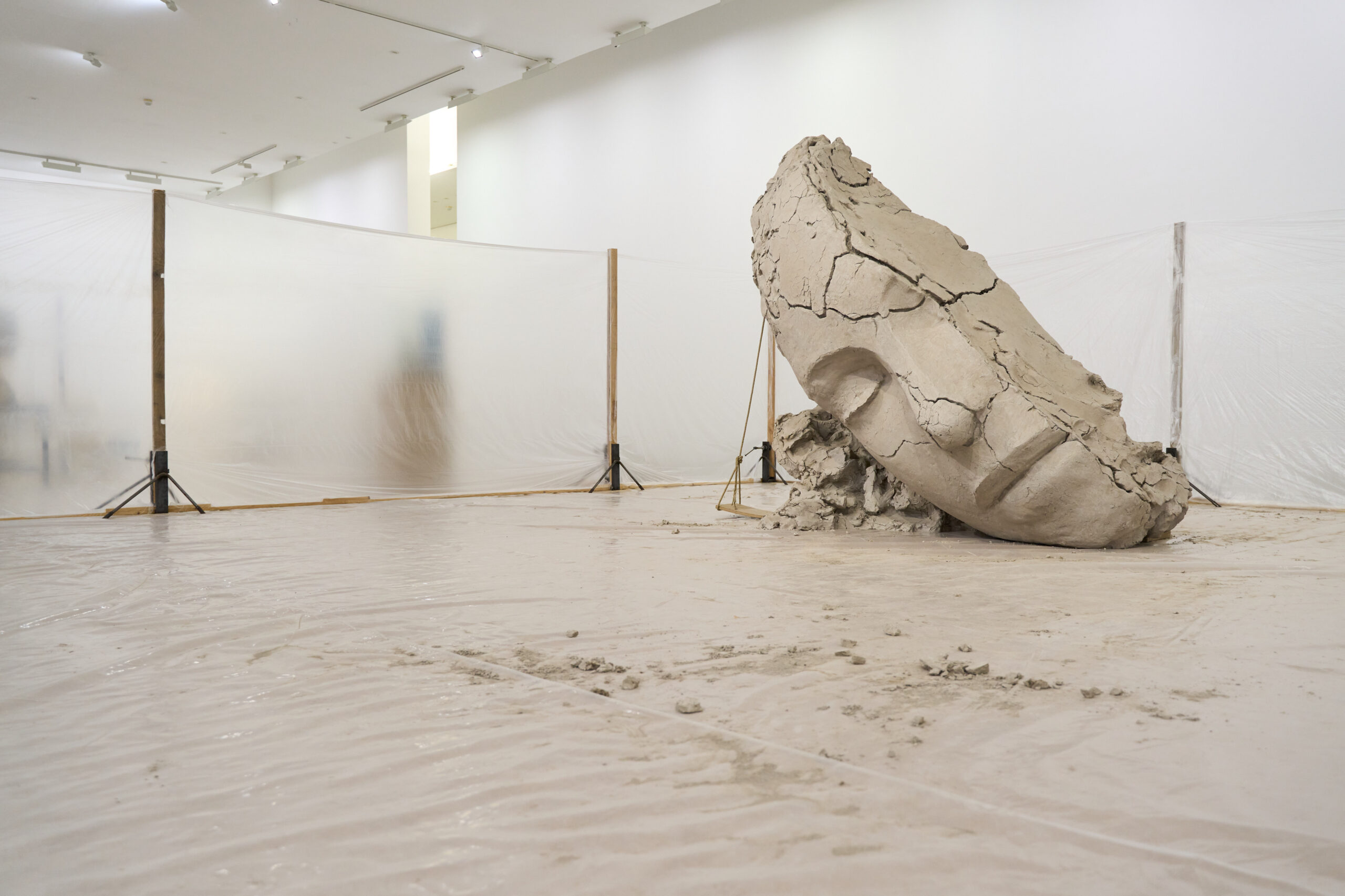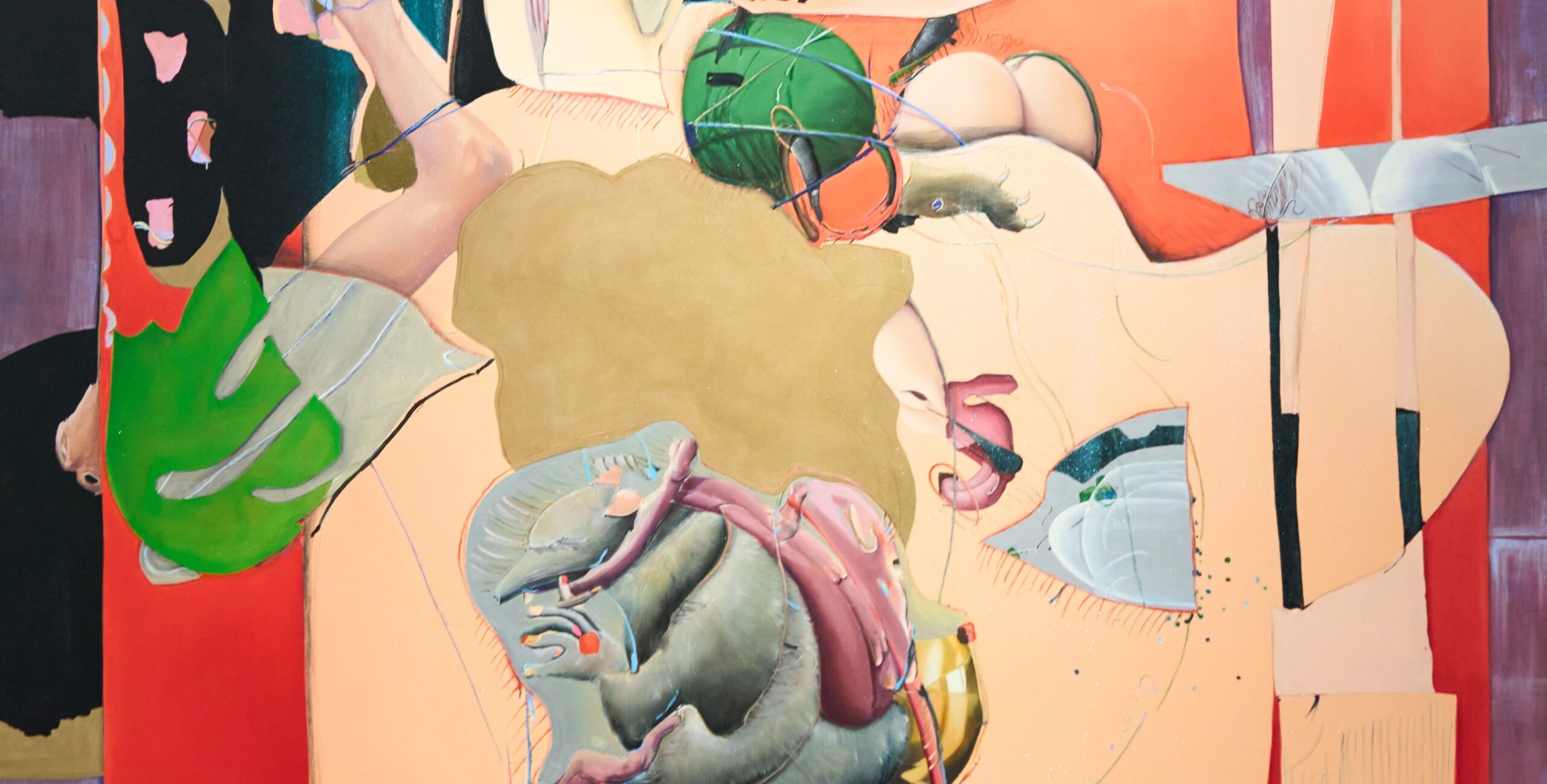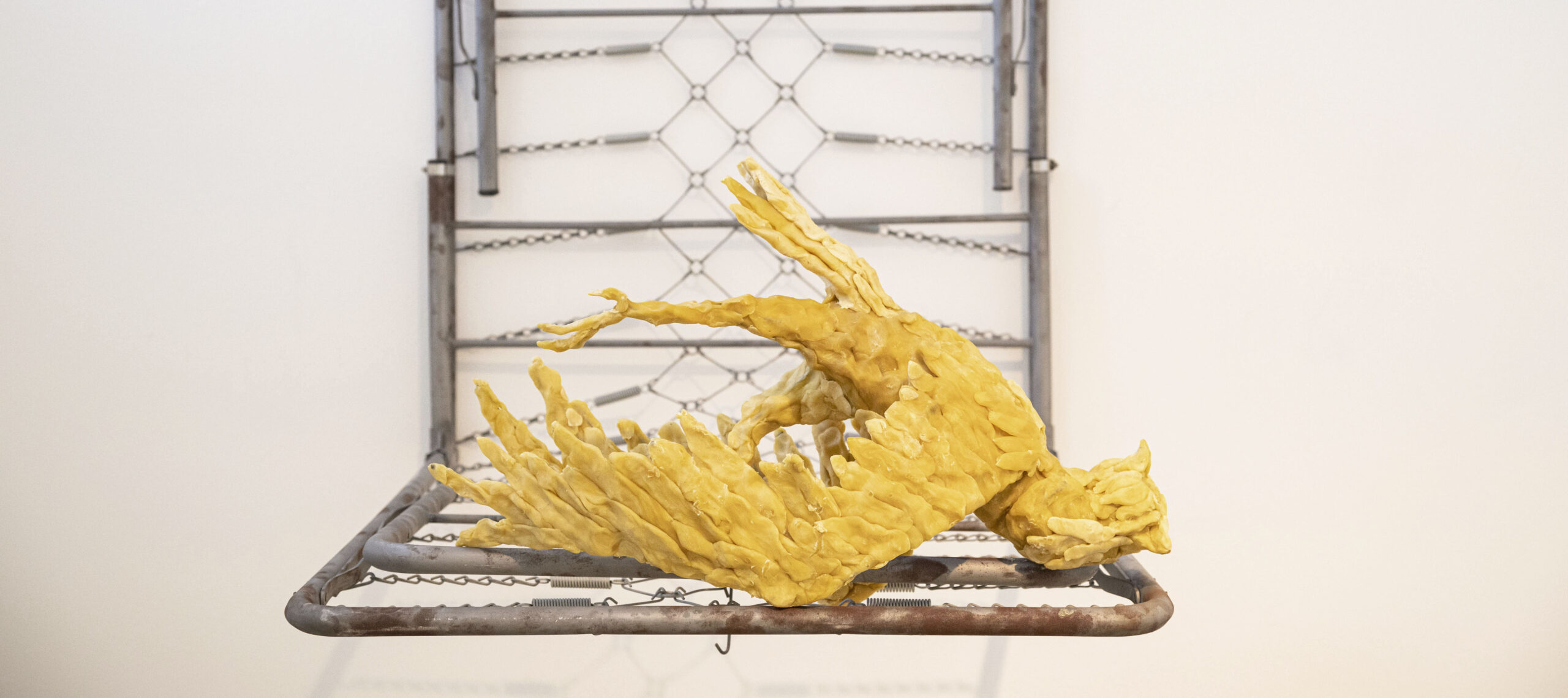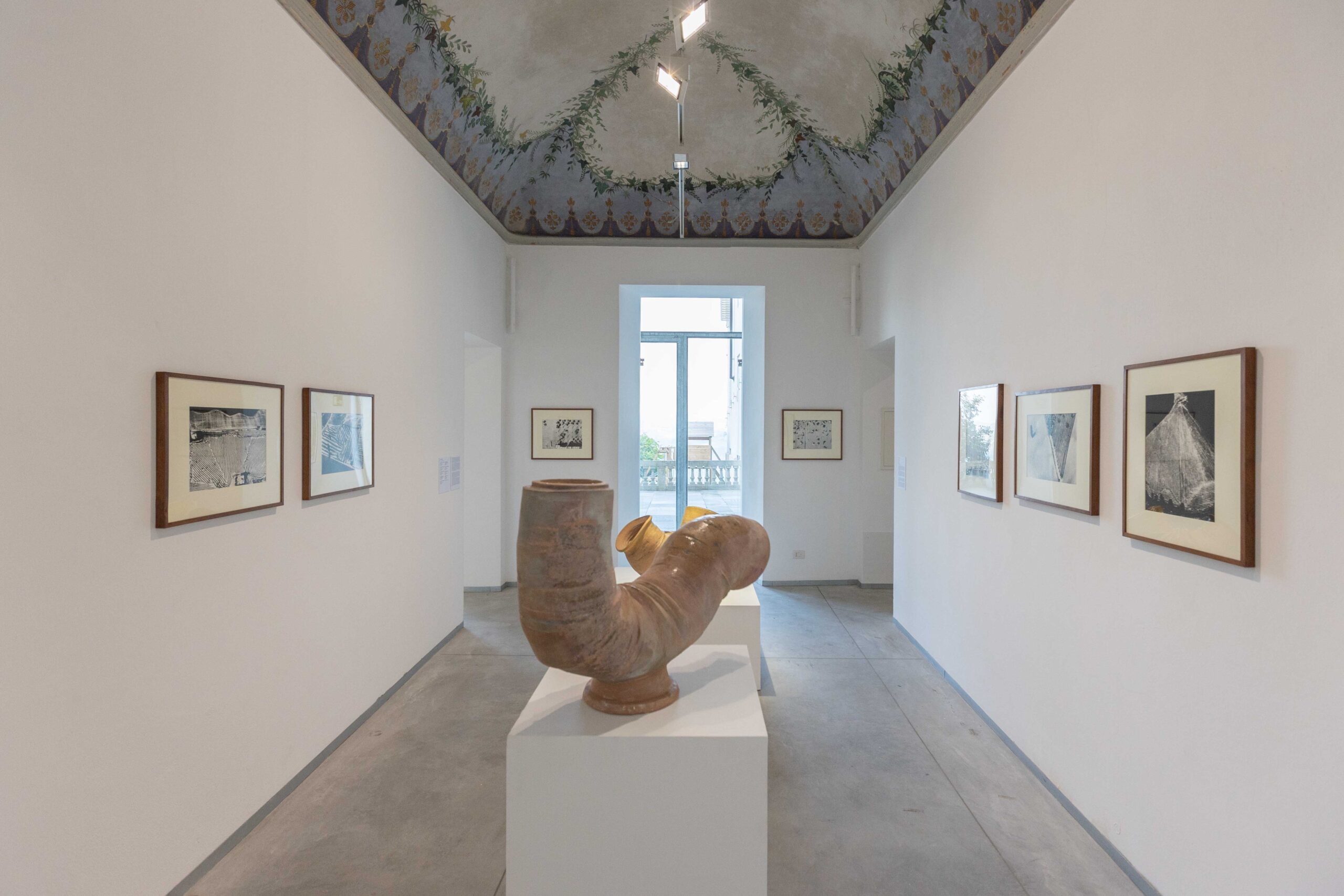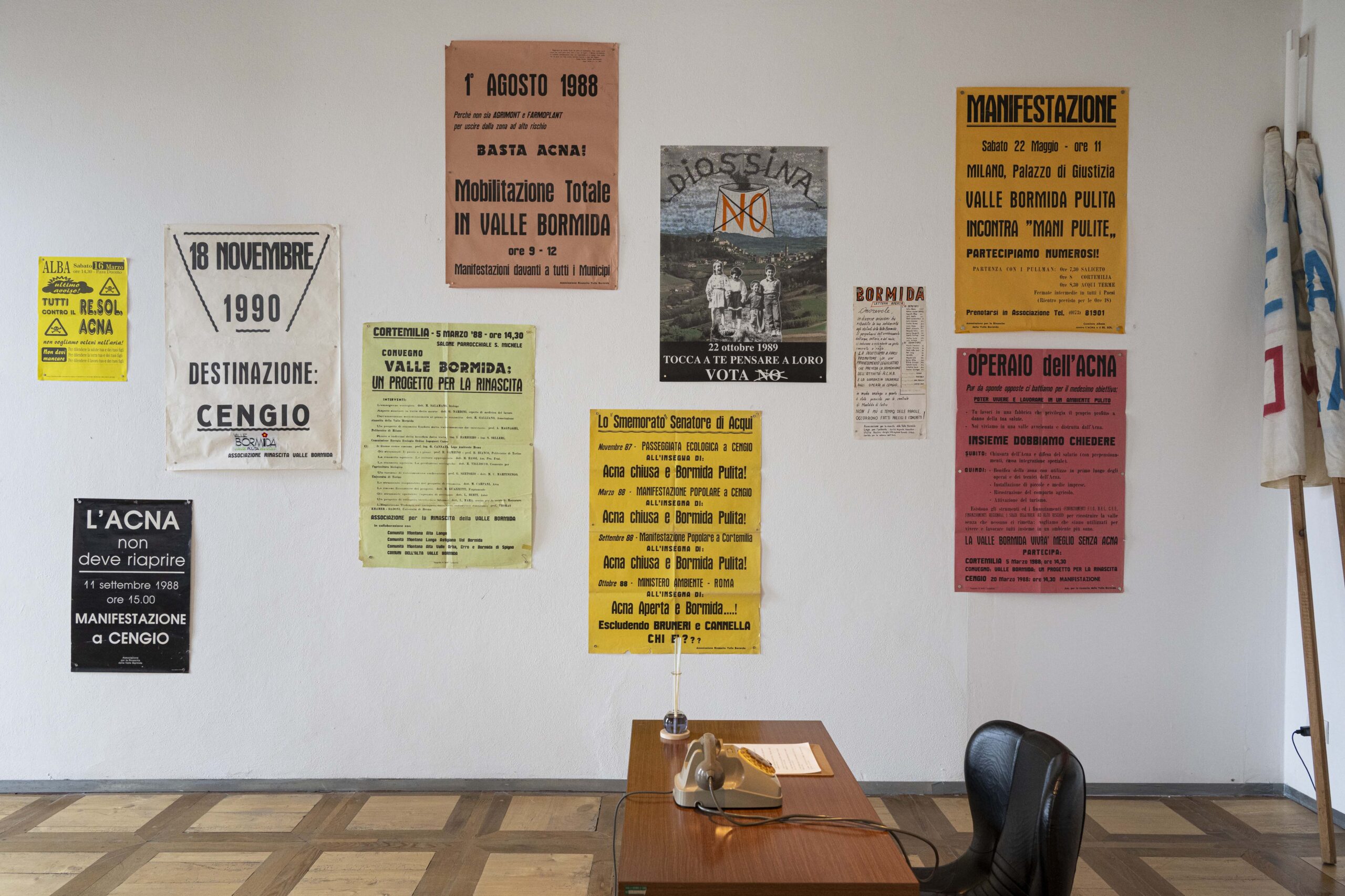Tin Ayala
There Is No Conquest Without Celebration
Curated by Bernardo Follini
Palazzo Re Rebaudengo, Guarene
September 21 – November 10, 2024
On the occasion of twelve years of collaboration with the École Nationale Supérieure des Beaux-Arts Lyon, the Fondazione Sandretto Re Rebaudengo presents There is No Conquest Without Celebration, the first solo exhibition of Tin Ayala (1998) in Italy. Ayala is a participating artist in the 2023 edition of the Post-diplôme, a post-graduate research program for the arts organized by the French school and coordinated by the curator Oulimata Gueye, open to five artists each year.
Born in the Andes, in territory now designated as Ecuador, Tin Ayala centers his practice on Cholo identity. A word of Quechua origin, the term was historically used to refer to the descendants of indigenous people and Spaniards during the period of colonization. For Ayala, this identity—charged with generative, transcultural potential—has the capacity to resignify colonial notions of race. His work is conceived as a scenographic collage, combining precolonial images, contemporary representations, indigenous symbols, and pop culture characters. As part of his practice, he also carry out direct actions in collaboration with local collectives in the Andes around Cholo identity.
There is No Conquest Without Celebration presents a new chapter in the artist’s ongoing research on Cholonization, undertaken over the past two years. The project recognizes the potential of “Cholo” identity to redefine the culture of the Andes and create a space of heterogeonity that simultaneously allows the survival of local cultures, which have often been tied to historically oppressed social groups, as well as adopts elements of hegemonic, often international, cultures.
As part of this line of research, There is No Conquest Without Celebration explores celebration as a counterpoint against coloniality, enabling communities to reclaim and assert their culture, in order to shift the narrative from colonial lamentation into celebratory empowerment. Highlighting the historical exploitation of Andean resources, and its role in fueling European economic growth, the exhibition at the Palazzo Re Rebaudengo presents a series of piñatas depicting figures from the Spanish colonization of the Andes. Suspended from the ceiling, the piñatas are filled with banknotes totaling the exhibition’s budget. Each sculpture will be broken apart, one at a time, following a progressive schedule starting from the opening of the exhibition on September 21 until the end of October. At the end of the exhibition, the total sum of money contained in these piñatas will be transferred to El Alto Aesthetics, a multidisciplinary collective based in El Alto, Bolivia. This act, reversing the flow of wealth, is also intended as a symbolic gesture of restorative justice, supporting the cultural and intellectual resistance in the Andes.
Tin Ayala (1998) studied at the Ecole Supérieure d’Art de Saint-Etienne, France at Escola Massana in Barcelona, Spain and at the Geo-Design department of the Design Academy Eindhoven, The Netherlands. He actively participates in El Alto Aesthetics collective based in La Paz, Bolivia.
